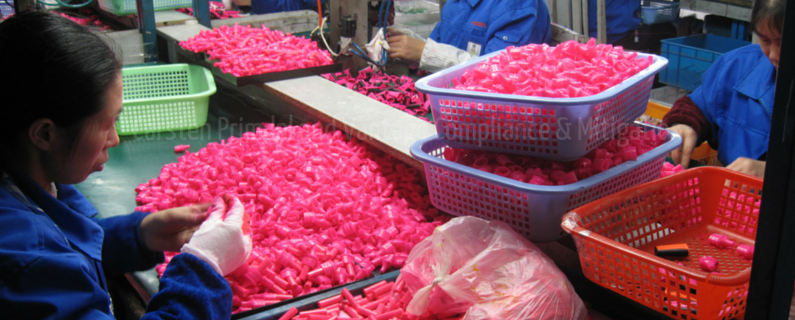As the world’s largest exporter of factory-made goods, China has thousands of factories in action every day, producing millions of pieces of goods for international marketers. Since stepping into the industrial arena, China has encouraged its factories to develop production standards that are equal to or comply with manufacturing standards from around the world. It isn’t surprising that sometimes, the factories struggle to achieve goals that may still be foreign to them.
One aspect of this situation is the often-real truth that factories simply do not adequately plan their production strategy. Without a plan to manage staffing requirements, material supplies or deadline responses, the factory can careen from one contract to the next, wasting supplies and labor, creating environmental challenges and impacting the end quality of the goods in production.
As an independent supply chain consultant, I have experienced this situation a number of times. In one notable instance, the factory was manufacturing home textiles, including curtains, bed linens and tea towels. On the day I arrived, the workers were refusing to work at all because of wildly fluctuating work hours. Upon questioning some of the workers, I learned that there was no scheduling consistency. Workers did not know if work was available from one day to the next, and, when they were scheduled, they never knew how long each shift would run. Workers would come in for a 3-hour shift on one day, and then a 16-hour shift the next day. The chaotic calendaring eroded staff morale and certainly had an impact on the quality of the end products.
It turned out that factory management did not have a production plan in place for any of their contracts, nor did they consider one to be necessary. Instead, they ran the plant from one paper in a pile of orders to the next, doing each order as fast as possible before moving on to the next. Without consideration of production times, supplies required or deadline expectations, the entire process was rushed and, in the end, haphazard.
Fortunately, this factory management team was willing to engage with us in a planning workshop. We designed and delivered the workshop in direct relation to the conditions we found at this site. We trained management on pre-planning strategies and gave them tools to implement the strategies and level out the factory’s workload. As a result, worker satisfaction increased, and product quality improved.
The overall manufacturing industry in China is striving to improve its capacities, but many of its systems still retain cultural nuances from the past. The notion of “long term planning for optimal factory management” is definitely a new consideration, and is often thought of as an expensive (and unnecessary) luxury. Failing product quality caused by inefficient factory management is a legitimate concern for off-shore manufacturers looking to improve their financial status by accessing China’s unique and economically enticing manufacturing sector. Mitigating the supply chain risks improves the likelihood of a receiving a high-quality end product.
After 17 years of doing business in China and Asia, we have delivered training courses to over 1500 businesses across the continent, on subjects as complex as production planning, “Chinese standards” quality assurance and Chinese manufacturing compliance. While having the education in these processes from the start, we have certainly been further educated by our experiences within the Chinese manufacturing community. We have found that factories that are willing to engage in these trainings, and who follow through on the implementation of them, consistently provide higher quality service across their product lines, and over the course of time.
Off-shore manufacturers who are looking to engage with the Chinese manufacturing community find that their time is better used, and their money better spent, when they access services of a Chinese Supply Chain Consultant. They avoid the waste of time caused by having to change factories due to failures in manufacturing process. They also avoid the waste of effort in trying to learn the intricacies of the industry themselves. By using a consultant, off-shore manufacturers can be assured from the start that their chosen Chinese manufacturing partners have the capabilities and processes in place to produce the high-quality goods requested.
If you would like to know more, you can download a free checklist “New Supplier OnBoarding Checklist” here.
https://vantagecompliance.com/buying-from-china-bg/
The checkpoints are not only for new suppliers, in fact they should be checked and verified regularly for all suppliers.
This blog was written by Carsten Primdal, an independent consultant who helps businesses that have manufacturing done overseas – especially in China – minimize supply chain risk.Drawing on years of on-the-ground experience and a strong understanding of the cultural and commercial context, Carsten is passionate about helping his clients gain greater control over the risks most companies face knowingly or unknowingly.
Urgent issues? Questions? Concerns? If you are considering/already buying from Chinese factories and would like more information, please feel free to contact us.
I can be reached at carsten@vantagecompliance.com or on (+61) 413 089 020



